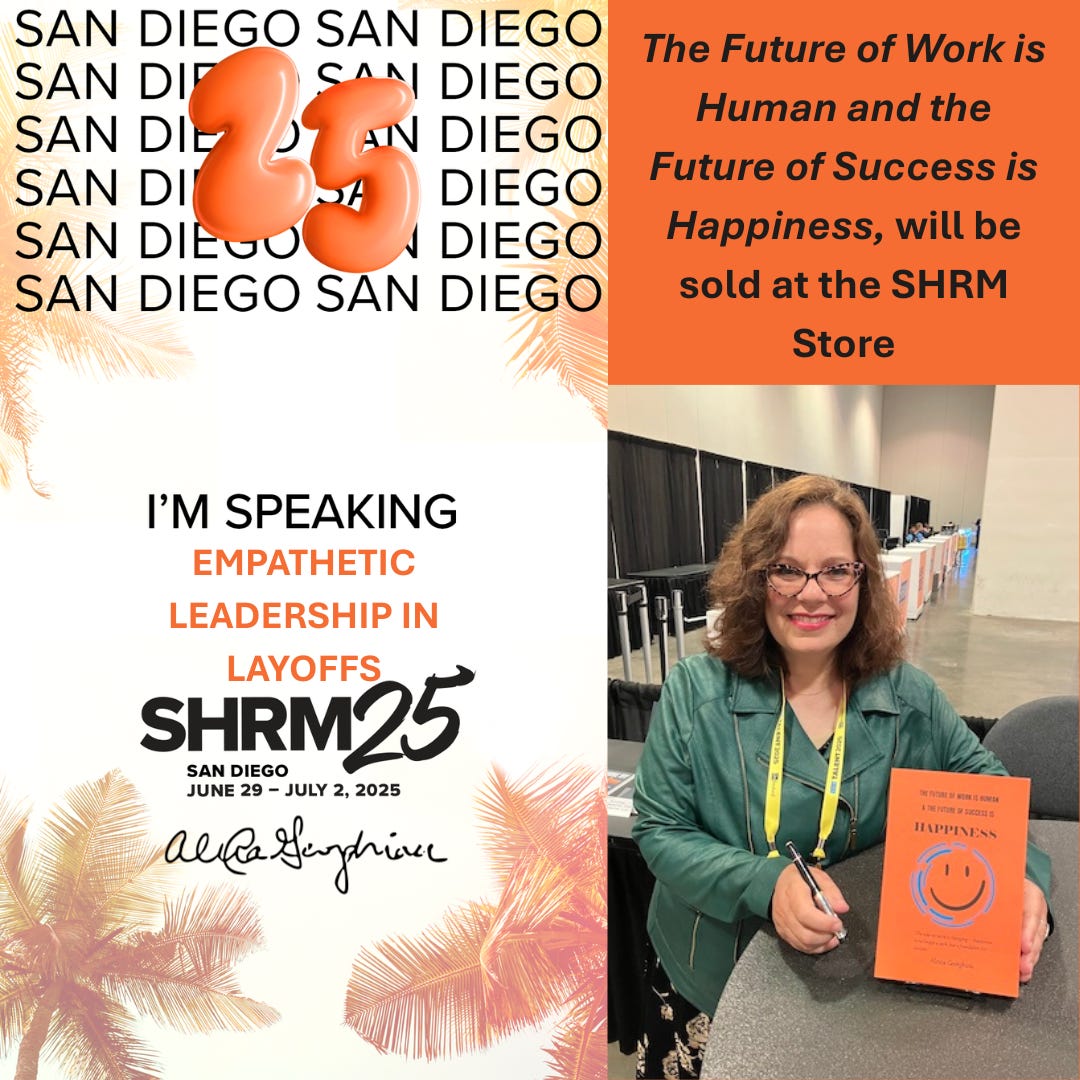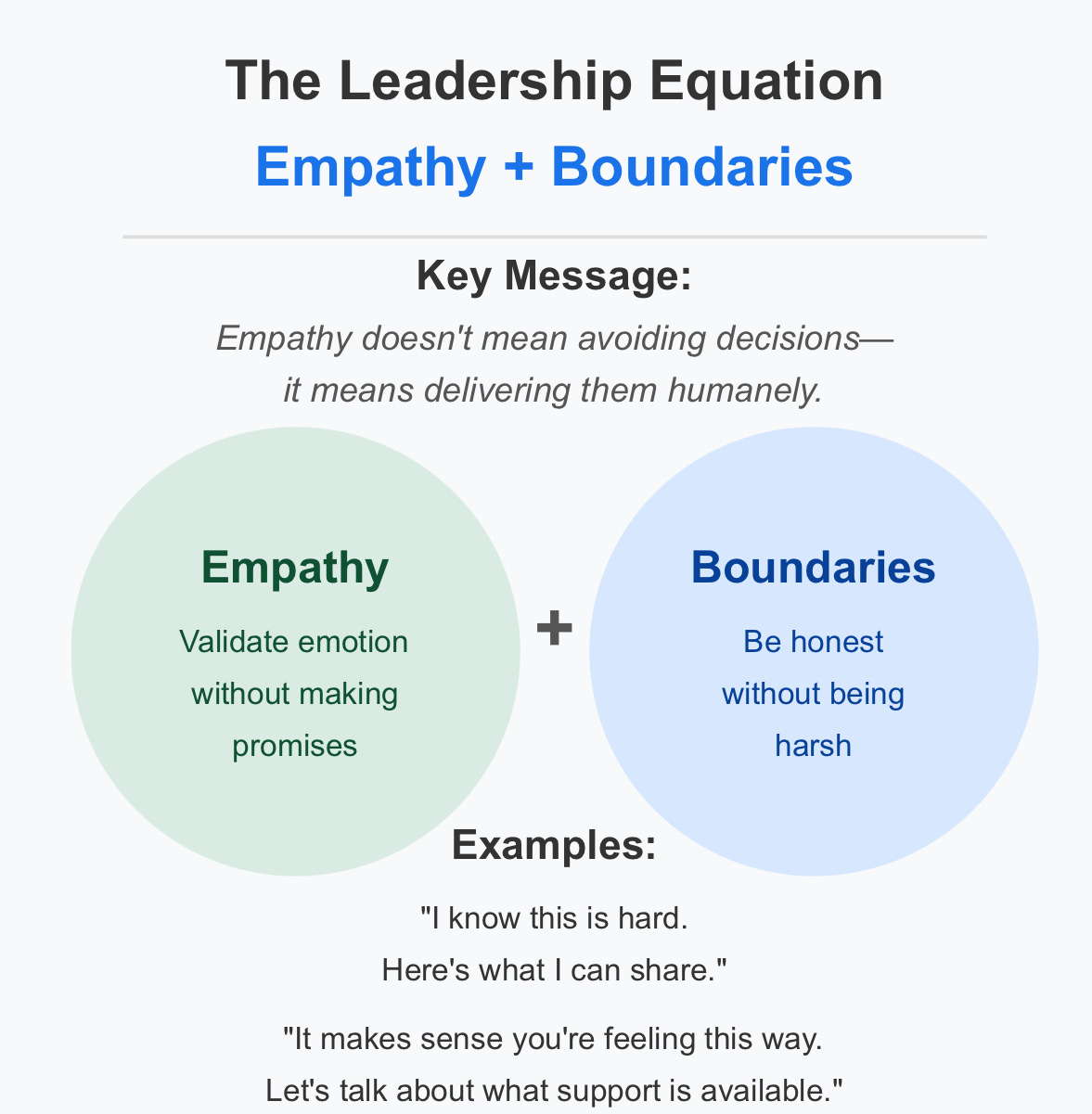Empathetic Leadership in Layoffs
This talk, at its core, is about building a healthy organizational culture—one rooted in empathy, clarity, civility, and purpose.
Layoffs are one of the most difficult challenges any organization can face. They don't just affect those who are let go, but also deeply impact the morale and engagement of remaining employees. Without proper leadership, the aftermath of layoffs can lead to low morale, decreased productivity, and increased turnover. This talk is designed to equip leaders with practical, empathy-driven strategies to support employees through the emotional challenges of layoffs, ensuring that remaining staff stay engaged and committed. Learners will identify how to navigate the stages of grief in the workplace, apply successful retention strategies, and foster a resilient, trusting workforce in the face of uncertainty.
Join me at SHRM25, 7.1.25-4pm PST—The Marriott Grand Ballroom—in person/virtual. My book will be sold at the SHRM Store!
The SHRM Q1 2025 Civility Index found that layoffs and mass terminations are strongly linked to higher levels of incivility at work. Workers in companies that had layoffs were more than twice as likely to experience and commit rude or disrespectful behavior compared to those in companies without layoffs. This suggests that stress and uncertainty from job cuts may lead people to treat others poorly, creating a cycle where incivility spreads. Overall, workplace civility dropped slightly this quarter, and other factors like political tension, return-to-office mandates, and personal anxiety also contributed to rising tension and disrespect at work.
Empathy and boundaries in layoffs mean handling the difficult process of letting someone go with compassion and respect, while also maintaining clear professional limits. Empathy involves acknowledging the emotional impact of the layoff on the individual, listening with care, and delivering the message with dignity and humanity. At the same time, setting boundaries ensures the conversation remains focused, respectful, and aligned with company policies—avoiding personal justifications or overpromising support. Striking this balance helps leaders maintain trust and integrity, even in challenging moments.
This talk, at its core, is about building a healthy organizational culture—one rooted in empathy, clarity, civility, and purpose.
In my book, The Future of Work is Human and the Future of Success is Happiness, I share micro steps to creating a culture that works, using science-backed strategies that help teams thrive, even during challenging transitions. It's about creating environments where people feel seen, supported, and empowered to do their best work.
Hope to meet you at SHRM25!





